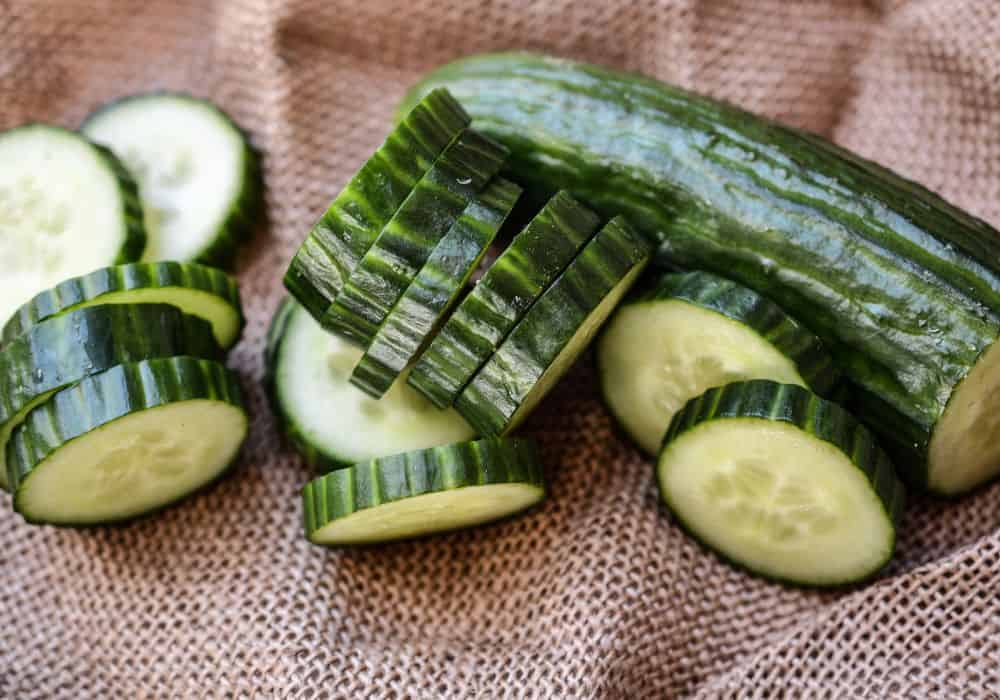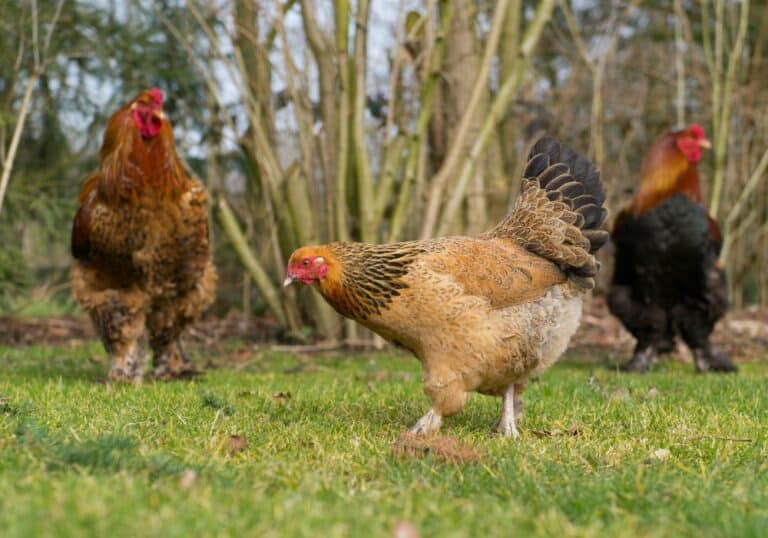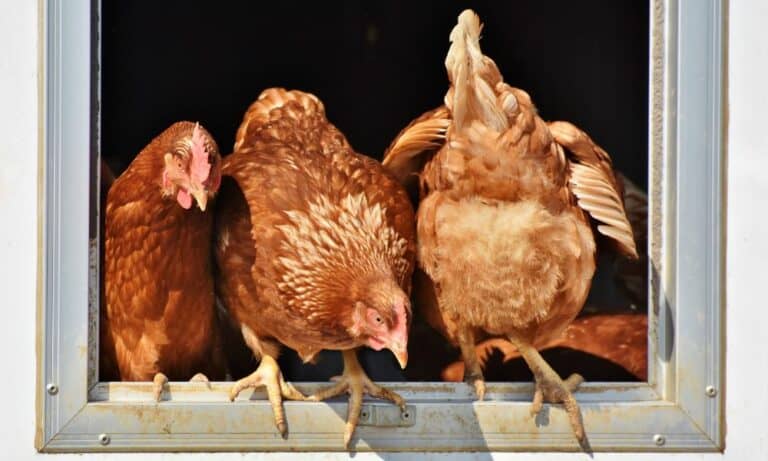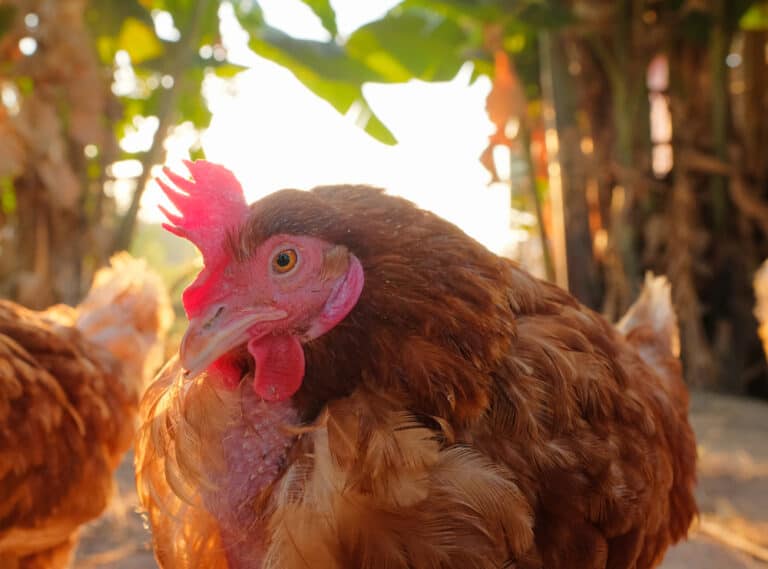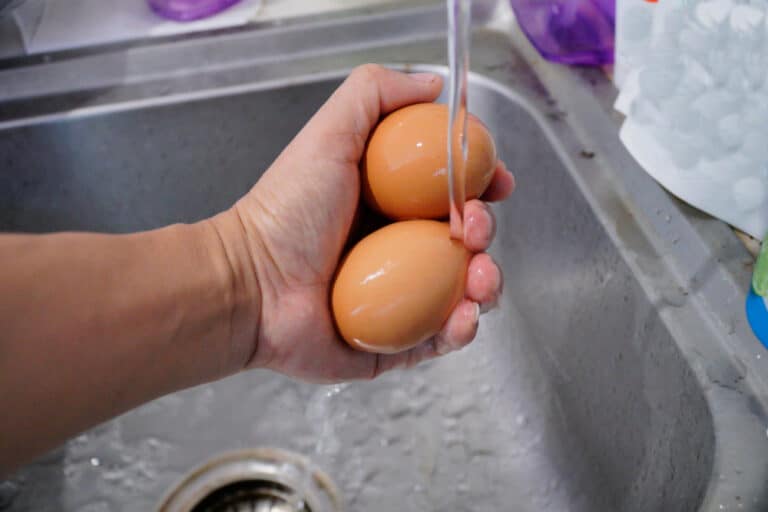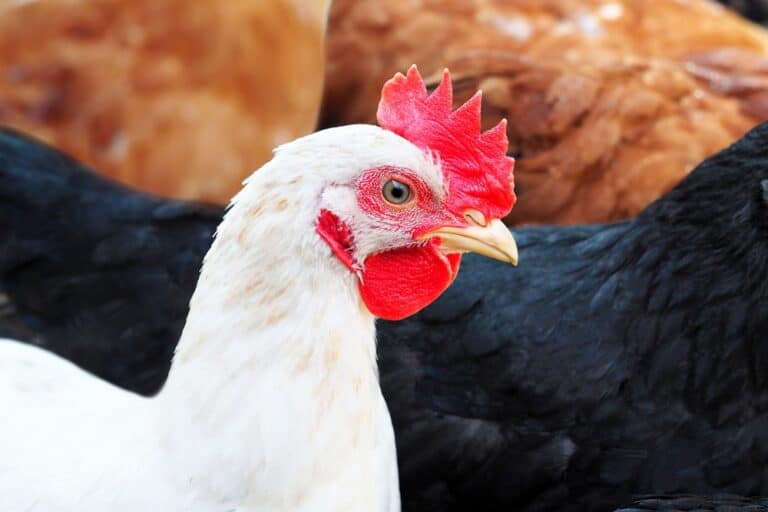Are you looking to diversify your chicken diet? If so, you have landed in the right place!
Those looking to diversify or upgrade their chicken’s diet often ask which foods chickens can eat and what they, as chicken keepers, should avoid giving to them. One of those questions is: Can chickens eat cucumbers?
As a long-time chicken keeper, I always strive to enrich my chicken’s diet and make them happier because a happy flock means more eggs, fewer deaths, and fast growth. Let’s learn about cucumbers, their nutrition, health benefits, and more!
Are Cucumbers Safe for Chickens to Consume?
Let’s get to the bottom of this mystery! Chickens can indeed eat cucumbers! These fowls are omnivores, meaning they enjoy a versatile diet of grains, vegetables, fruits, and insects. Can baby chickens eat cucumbers?
Yes! They are also perfectly safe for chicks, and you are recommended to serve them with this delicious fruit moderately!
Cucumbers have numerous health benefits and are an excellent food choice for chickens during the hot summer days because they are made up of 96% water.
Generally, health physicians recommend eating cucumbers during summer due to their great hydrating properties and high water content, so there is no reason why chickens should not eat some of these delicious fruits as well.
General Information About Cucumbers
Although most of us grew up thinking that cucumbers are vegetables, they are fruits according to the botanical definitions. The cucumber is a creeping vine plant from the Cucrbitaceae family that produces cylindrical fruits used as culinary veggies!
They are annual plants, and we can differentiate three different types of cucumbers: those are slicing, pickling, and seedless. Within each of these cucumber types, several cultivars have been created.
This delicious fruit comes from the Himalayas to China to N. Thailand, although today, you can find it growing on almost every continent. Interestingly, in the US, there is a vegetable called wild cucumber that is native to North America and resembles the cucumber.
Although regular and wild cucumbers look alike and have the word “cucumber” in their name, they are not closely related. The wild cucumber is from the genera Echinosystic and Marah.
Cucumbers are one of the most popular fruits in North America, and according to a study, Americans eat around 12 pounds of cucumber per capita annually on average. ¸
They are versatile and are usually consumed raw and fresh; you can use cucumbers year-round for numerous recipes, such as sandwiches and salads.
Which Part of The Cucumber Can Chickens Eat?
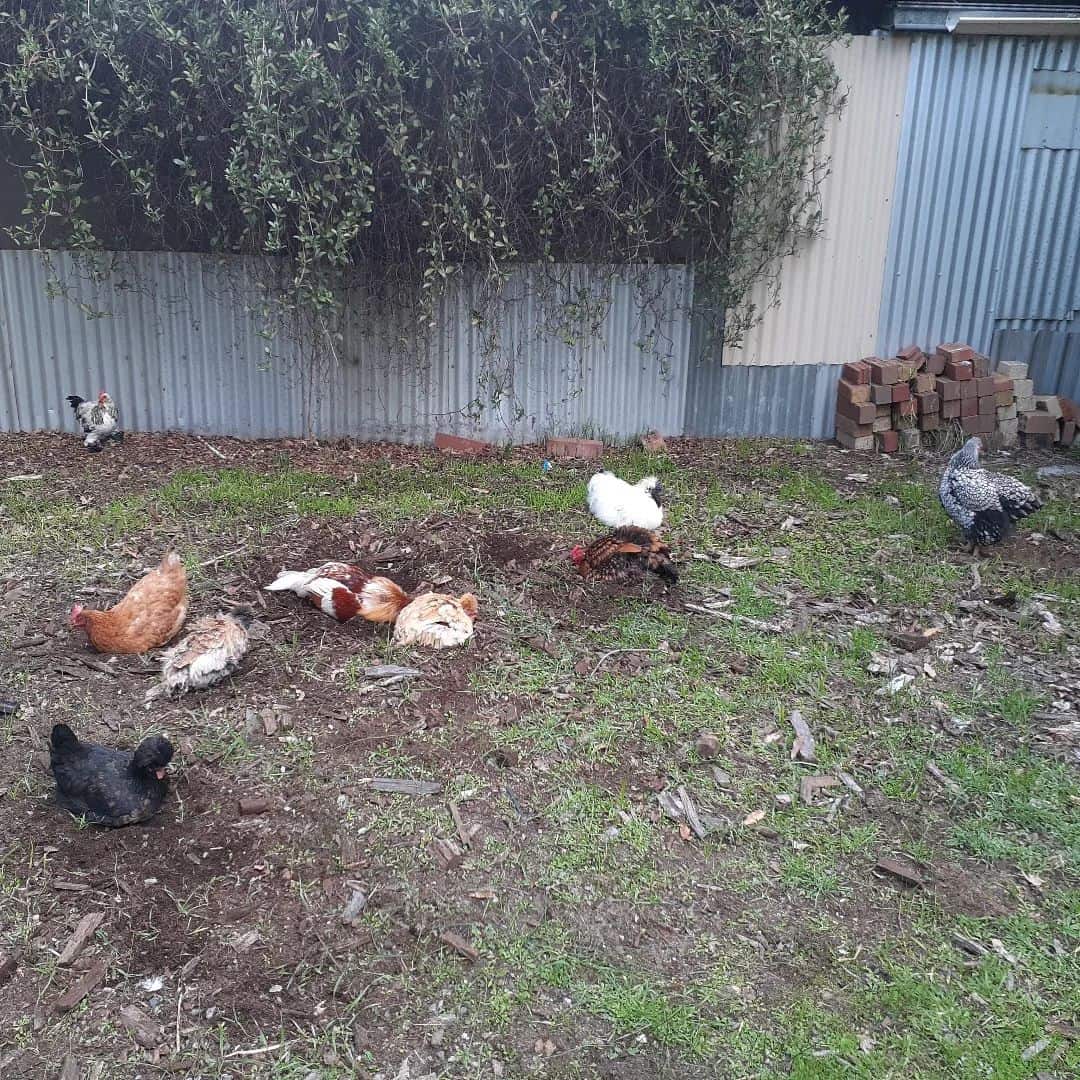
When we talk about eating cucumbers, we immediately think about the cylindrical and spherical fruit. However, cucumber also has leaves and a vine, so let’s check whether chickens can eat those parts of the plant!
1. Leaves
If you are a bit knowledgeable, you know that there are parts of certain plants that should not be given to chickens. So are cucumber leaves one of those? No, they are not!
Cucumber leaves are perfectly safe for chickens to consume. Keep in mind that when it comes to giving any type of leaves to chickens, you must wash them thoroughly because they are often treated with different pesticides or chemicals.
Also, cucumber leaves are a bit sturdy, and it will take some time for a chicken to peck it and eat it completely. Chickens are very curious by nature and not very picky when it comes to food, so you can just place it on the ground, and they will come to check it out.
Although they are not finicky eaters, they can have preferences, so do not be surprised if some of the chickens decide to leave it after a couple of ‘pecks.’
2. Peels
Cucumber peels are also safe for chickens, and they may like it even more than the leaves. When preparing peels for your chickens, the same rule applies to the peels; wash them properly before giving them to your chickens.
Generally, chickens seem to be more enthralled with peels rather than leaves, but if the peels are too tough, they may give up on it. How can you tell if the peels are too tough for chickens?
Well, if several peels are left out and lying on the ground, you need to cut them into smaller pieces or make them thinner. The best way is just to wash and string them.
3. Seeds
Since the cucumber fruit is good for chickens, there is no reason cucumber seeds would be problematic, given that seeds are inside the fruit.
Like most types of seeds, cucumber seeds have vital nutrients, fiber, and vitamins, which are important for the immune system and healthy digestion. Seeds contain vitamins A, C, and K and minerals such as potassium and calcium.
In addition, the seeds are packed with amino acids, such as cucurbitine, which is believed to help birds fight parasites and worms. On the other hand, seeds can be a bit sour and have a bitter taste, so some chickens may not like them.
Do Chickens Like Eating Cucumbers?
Judging by my chicken’s enthusiasm when I throw a couple of cucumbers on the ground, it is safe to conclude that chickens adore cucumbers.
They generally need a well-balanced diet that includes chicken feed and some treats, such as vegetables, fruits, nuts, and many others. Most people combine giving them chicken feed and food scraps, which leads us to an important question. Keep reading!
Cucumber Health Benefits
As mentioned, cucumber has a number of health benefits, and they should be a part of your and your chicken’s diet. Cucumbers are rich in electrolytes and full of water, so they can help prevent dehydration, which can happen to chickens during hot summer days.
Furthermore, cucumber is excellent for bone health because it contains vitamin K, which helps with calcium absorption. This delicious and watery fruit is believed to have anti-inflammatory properties and support the immune system.
Since cucumber is a low-calorie fruit, it is known to aid in weight loss and promotes hydration. Cucumbers contain magnesium, manganese, potassium, and dietary fiber, which may help lower blood pressure.
Ultimately, cucumbers are good for cardiovascular health because the fibers are believed to manage cholesterol and thus may prevent cardiovascular issues.
Cucumber Nutritional Profile
According to the USDA, 142 grams of raw cucumber has only 17 calories, while the water content is 137 grams. Cucumber also contains 0.8 grams of protein and only 0.02 grams of fat. The amount of carbohydrates in cucumber in 142 grams is around 3.1 grams, of which 2.0 is sugar.
They have modest amounts of fiber, around 1.0, and much higher levels of calcium, around 19.9 grams. Cucumbers contain many minerals: iron at 0.3 mg, magnesium at 17, phosphorus at 29.8 mg, potassium: at 193 mg, and sodium: 2.8 mg.
Cucumber is also rich in vitamin C 4.5 mg and vitamin K 10.3 mcg. These fruits also have folate 19.9 mcg and beta-carotene 44 mcg.
Cucumbers have a wide range of antioxidants and B vitamins which are vital for removing free radicals from our bodies.
What Happens If I Go Overboard with Food Scraps?
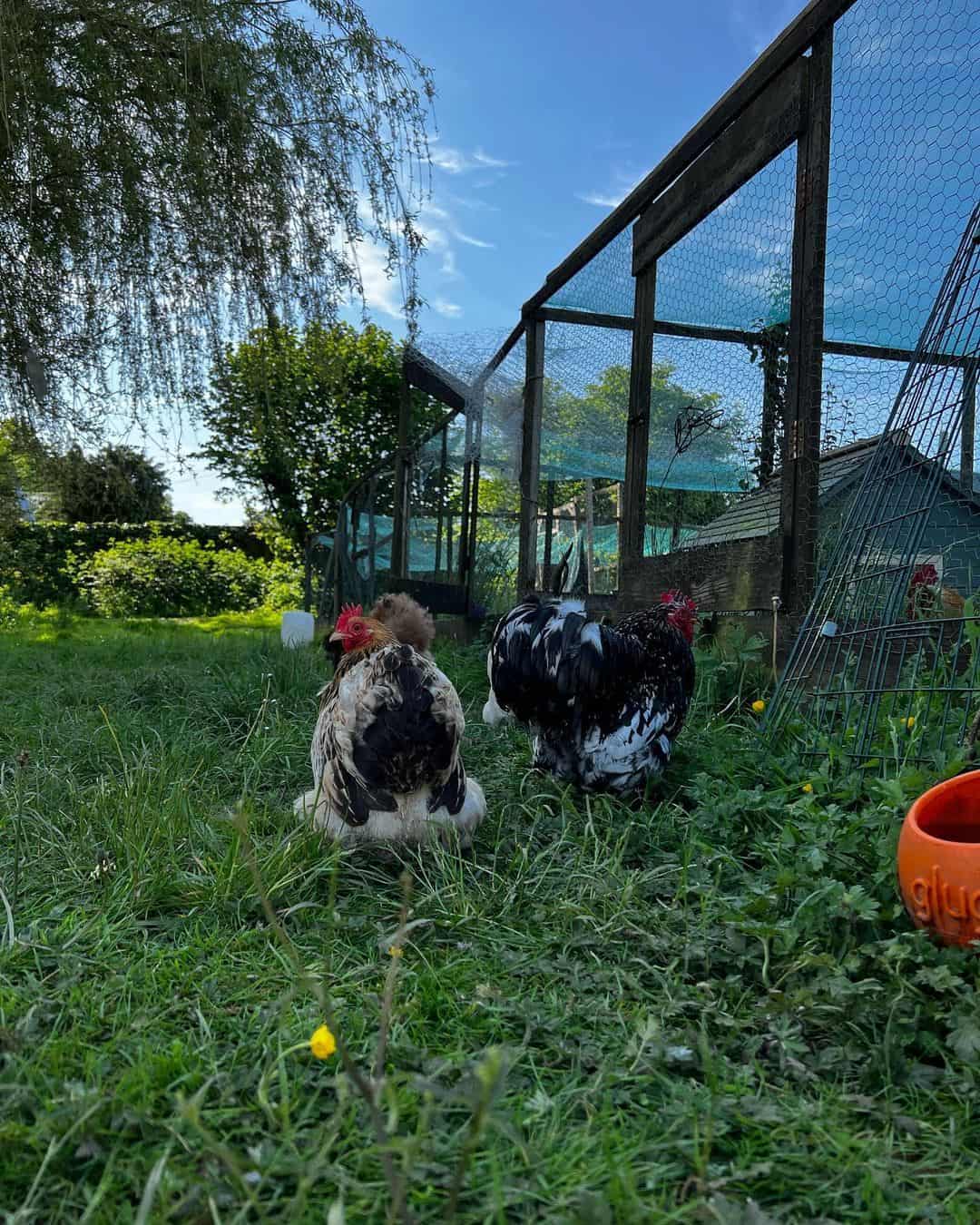
Giving chickens food scraps is cost-effective and good for their health because it can diversify their boring food regime. However, the quality of your food scraps is very important.
If you often rely on fast food and eat unhealthy food, you may skip giving the food scraps to your chickens. Also, food scraps are considered supplemental foods, so they should not be a major part of their diet.
Why? When you go to a store or Petco, you will see various chicken feeds labeled “complete,” which is not without reason. The chicken feed comprises all the crucial nutrients and vitamins your flock needs.
So, food scraps for chickens are treats like those we like to eat, such as ice cream or chocolate. Although they taste very good and will make you rethink whether you need that beach body, they are not good for your health.
1. Obesity, Fatty Liver Syndrome, and Protein Deficiency
For example, cakes, muffins, or biscuits are full of sugar, and consuming too many will cause numerous problems, such as obesity.
On the other hand, too many cucumbers can cause protein deficiency and even fatty liver syndrome, although it mainly results from consuming food high in fats. Fatty liver syndrome in chickens can occur due to a high-energy diet and lack of exercise.
It means that if your chickens spend a lot of time in their coop and you give them high-calorie foods in high amounts, this whole scenario will most likely result in obesity and excessive accumulation of fat in their livers.
2. Issues with Egg production
These are not the only consequences of excessive treatment; some include decreased egg production, malformed eggs, and production of multiple-yolked eggs.
The chicken’s diet and living regime (whether free-range or only coop-based) are very important for their egg production and happiness. Without a high-quality diet, you cannot expect your chickens to produce high-quality eggs and meat.
3. Feather Picking and Heart Problems
To be clear, feather picking and heart issues can have numerous other causes besides an imbalanced diet and excessive treats. For example, chickens often resort to picking after spending too much time in a cramped coop with many chickens.
On the other hand, protein or sodium deficiency can cause picking among chickens because they are seeking other sources to meet their needs, and the closest one is their fellow chicken in the coop or their own preening gland.
Picking will cause other health problems, such as infections, and will most likely weaken the chicken’s immune system. Also, food high in fats and sugar is related to heart problems and is the most common cause of chicken death.
FAQ
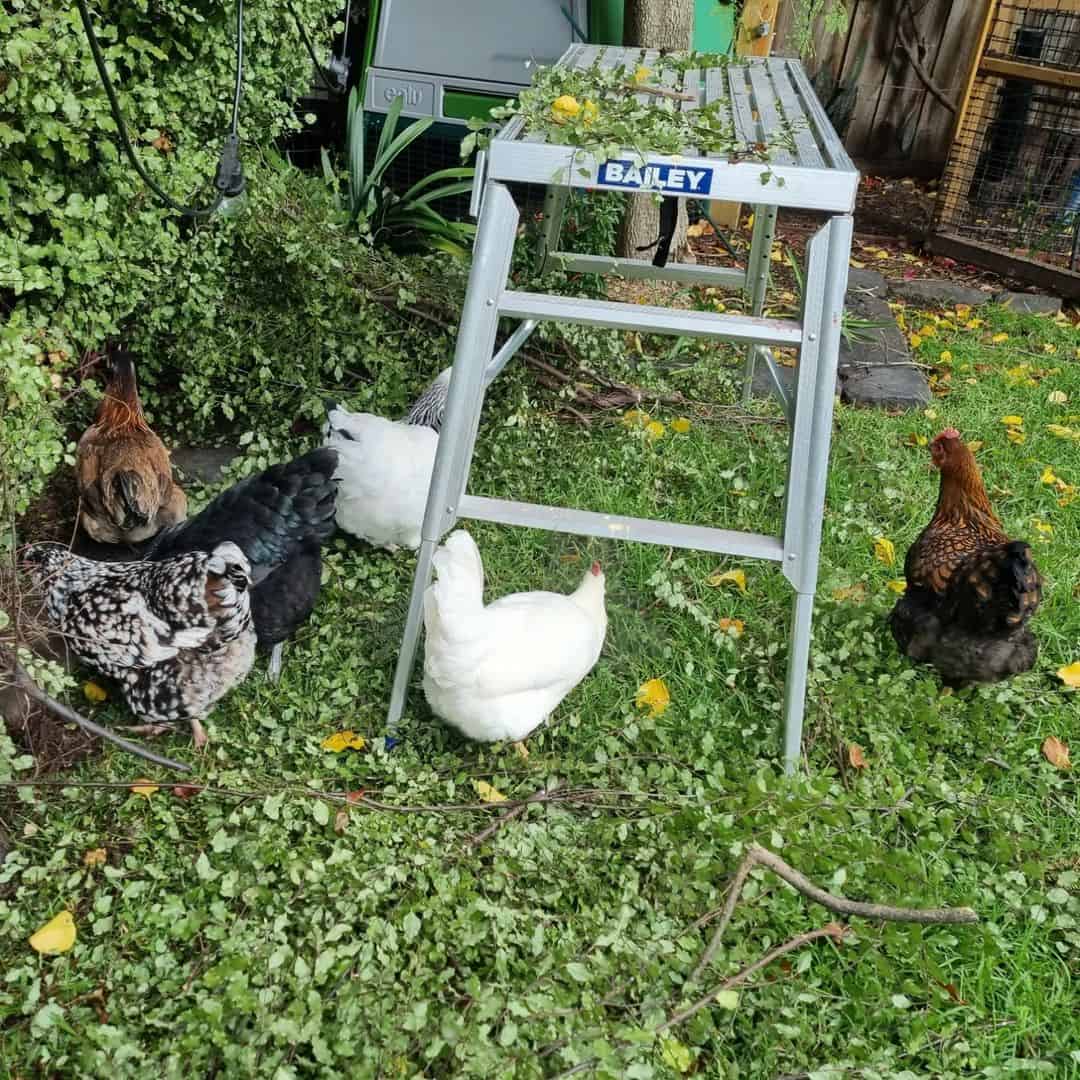
1. What Happens If I Go Overboard With Cucumbers?
This situation rarely happens, but you must know the consequences and how to avoid such a problem. Giving your chickens too much of any food (except chicken feed) will most likely result in some issues.
The symptoms may develop after prolonged and consistent consumption of that food or, in the case of this cucumber. As mentioned, cucumbers are water with some nutrients, fibers, and vitamins.
Too much water or relying on foods with high water content can cause an imbalance of nutrients and negatively affect egg production. Although water is the essence of life on Earth, hyperhydration or water intoxication can result in death.
2. What Chickens Like To Eat?
If we could interview chickens, they would probably say they like food scraps, treats, and plenty of veggies and fruits. However, a chicken’s daily diet must be balanced and predominantly consist of chicken feed, and 10% should be treats or snacks.
Chickens love mealworms, kale, cherries, pumpkin, peaches, blackberries, beets, apples, broccoli, bananas, cabbage, and many others. Just keep in mind that moderation is the main rule when feeding chicken.
Conclusion
So, we have answered the main question in this article, “Can Chickens eat Cucumbers.” Cucumbers are very healthy and should be included in your chicken’s diet.
We have covered which parts of the cucumber plant chicken can eat, cucumber’s health benefits, nutritional profile, and what happens if you give too many cucumbers to chickens!
We have also discussed whether chickens can eat scrap foods and what can happen if they eat too many! Do you plan to include cucumber in your flock’s diet? Please share your experience with us! If you have any comments, do not hesitate to share them!

